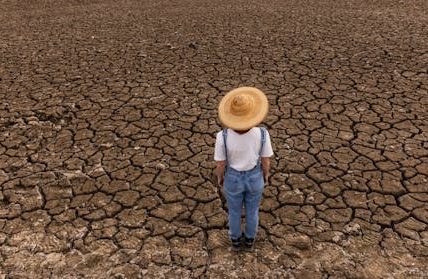The Bear season 4: this meaty restaurant drama is still an enticing bingeable prospect
Take a soupçon of identity crisis, a pinch of perfectionism, a scoop of burnout and mix thoroughly with a large measure of fraternal grief and sear over a hot grill and voilà! You have The Bear, a perfectly blended drama about a chef on the edge, driven by relentless ambition and exacting standards as he turns his family’s humble sandwich shop into a fine-dining restaurant.
This intoxicating family drama was eaten up by critics and audiences alike in 2022, its first season garnering a rare perfect 100% score on Rotten Tomatoes, the subsequent two reaching scores of 99% and 89% respectively. It’s certainly a hard act to follow for season four.
The first ten minutes of The Bear’s pilot episode thrillingly defined what was to come in high-octane style and scene-setting detail. The first season delivered a clever mix of authentic dialogue and setting, relatable family dysfunction and dynamic production style.
Showstopping scenes of stressful kitchen heat were served up alongside a delectable range of new and established talent in the form of Jeremy Allen White (Carmy), Ebon Moss-Bachrach (Richie), Ayo Edebiri (Sydney) and Oliver Platt (Cicero/Uncle Jimmy).
Looking for something good? Cut through the noise with a carefully curated selection of the latest releases, live events and exhibitions, straight to your inbox every fortnight, on Fridays. Sign up here.
In charge is showrunner Christopher Storer, who came up with the concept after being inspired by his friend’s father Chris Zucchero, the owner of Chicago sandwich joint Mr Beef.
With his professional chef sister also serving as a consultant, Storer succeeded in creating a deliciously authentic and intensely real drama. Buoyed along the way by 21 Emmys and five Golden Globes, Storer also watched his cast ascend, the tortured-soul performance of White garnering particular praise.
Testing the parameters of a long-running show, Storer focused in on the entire cast of characters and their backstories, a successful tactic used by shows such as Orange is the New Black to keep the drama – largely confined to a kitchen set – fresh.
Pulling in Hollywood die-hards Oliver Platt and Jamie Lee Curtis for familial tough-love roles further enriched the mix, often using a non-chronological timeframe to go back to moments of family turbulence and tension. This made for three-dimensional characters and enabled evolution around difficult themes such as the aftermath of suicide and generational trauma.
The Bear has come a long way in three seasons, starting with a spit and sawdust establishment serving up the lunchtime beef sandwiches for its working customers.
Carmy’s experience and longing for the high-end restaurant of his dreams hurtled forward in season two, as he sent his core crew off in different directions to hone their skills and help form his vision. A restaurant trying to win success but plagued with challenges, there were exhausting familial tensions embedded in every episode of season three.
Several themes play out in The Bear: love, family, loyalty, community and purpose. The relationship between Carmy and cousin Richie (not a real cousin, but a term of endearment) is key to linking past and future. Richie provides some of the highlights of comedy and pathos as he spits truth bombs, most frequently at talented sous-chef Syd.
It is Syd who follows Carmy’s aspirations for gastronomic perfection but can’t abide the lack of order or the intense highs and lows that inevitably go hand in hand with his talent. And this is one central question to consider for the latest series: just how long will the audience remain loyal to Carmy and his endless quest for artistry in a high-failure rate industry?
It’s all in the sauce
Storer begins season four with a ghost. Carmy and his dead brother Mikey (Jon Berthal) banter in a seven-minute scene, with Carmy ultimately confiding the dream of a restaurant as Mikey watches him make tomato sauce (“too much garlic”). The tomatoes resonate: Mikey left behind money hidden in tomato cans that ended up saving Carmy’s sanity and his dream of a proper restaurant.
Just as oranges represent death to Frances Ford Coppola, Storer uses tomatoes to underscore themes; here they symbolise familial loyalty and history, a solid base to a meal, a core ingredient. Mikey was one of the core ingredients in Carmy’s life, and now he’s gone.
Carmy awakens to a rerun of Groundhog Day on late-night TV and fittingly, we too are back – same dish, now more seasoned and enriched with its core ingredients and ready to serve up a big bowlful of family, love, ambition, strife and grief.
The episode furthers the theme of loyalty as the restaurant receives The Tribune’s review – the cliffhanger of the season three finale. Naturally, Storer doesn’t let up – the food critic highlights “dissonance” and Carmy is back in emotional chaos, with Syd urging him to lighten up and lose the misery.
In truth, this series could do with adding some more humour in the mix; the teasing and frivolous banter of season one has got somewhat lost in the seasons that followed.
Storer ramps up the tension, setting several ticking clocks in place: chiefly Uncle Jimmy’s notice period for the business to turn a profit is literally installed on a digital clock in the kitchen. Then Syd’s headhunter calls, offering her desired autonomy and an exit strategy from the chaos.
And Carmy raises the stakes with an intention to gain a Michelin star. Thus a heroic journey is set in place for the whole cast, with future battles both internal and external laid out.
There’s too much going on at this feast and the feeling of being stuffed full of story is tangible by the end of the first episode. Still, with a season lining up more emotional turbulence steered by White, more celebrity cameos (Brie Larson and Rob Reiner are lined up) and the excellent cinematography and performances that we have come to expect, Storer stirs his secret sauce.
The Bear still offers an entertaining and enticing proposition, bingeable and mostly satisfying.
Jane Steventon does not work for, consult, own shares in or receive funding from any company or organisation that would benefit from this article, and has disclosed no relevant affiliations beyond their academic appointment.


